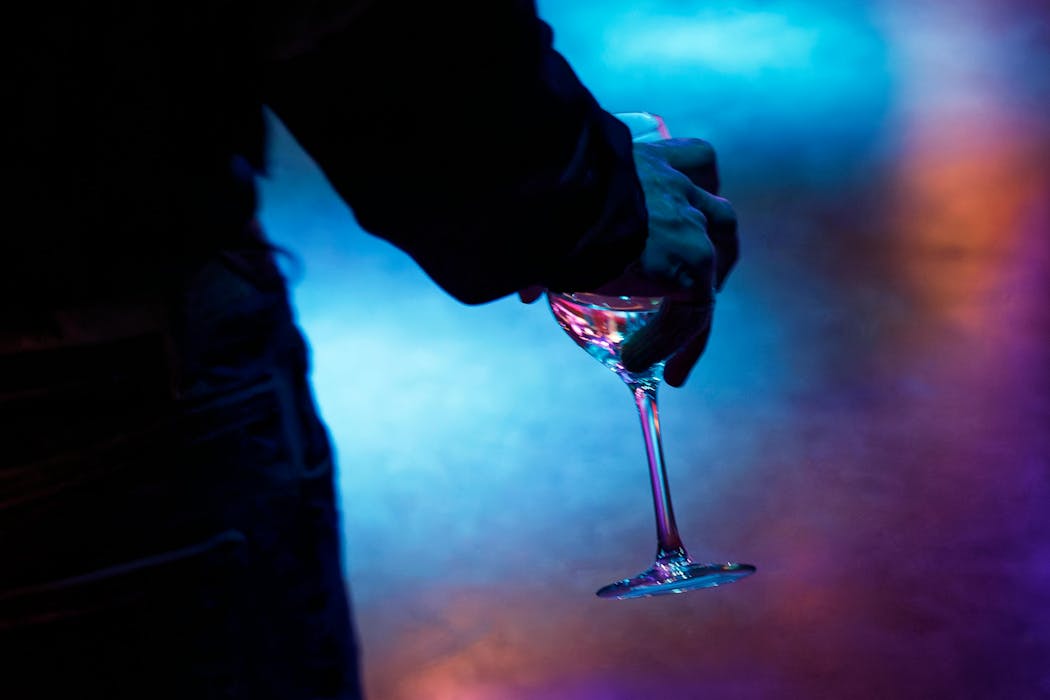
With less than a month until Christmas, end-of-year work parties are now well underway.
Authors
- Michelle Tuckey
Professor of Work and Organisational Psychology, UniSA Justice & Society, University of South Australia, University of South Australia
- Nicole Moulding
Professor of Social Work and Director, Safe Relationships and Communities Research Group, University of South Australia
For many, it's a chance to celebrate the end of a long year. But more than one in six (15%) incidents of sexual harassment in Australia happen at work social events. Sexual harassment also happens during work-related travel, which includes being driven home from a work party .
If you end up being sexually harassed or even assaulted at your work party, there's a list of resources at the end of this article.
You're not alone. Community and legal centres are telling us they're gearing up for an influx of cases over the coming weeks.
And if you're a partygoer who sees something that makes you uncomfortable, or a boss wanting to keep your employees safer - here's how you can make a real difference too.
What if I was harassed at a work party?
If someone's made an unwelcome sexual advance, that wasn't your fault. Especially when it's someone you know and thought you could trust, being harassed can feel confusing and scary .
We're part of a three-year research project on how to prevent sexual harassment at work.
While undertaking that research, one of the warnings we're seeing from victim-survivors who have made harassment complaints is how often invisibility was a factor. In other words, situations without many other people around as witnesses.
Another risk factor is close proximity. That can happen at the party itself, especially in crowded areas. Or it could happen on a drive to or from the party, where you're stuck in a car, with little chance of getting away.
It's often harder than people realise to get out of those situations. As soon as you can, tell a friend or colleague what's happened and get help.
What if I was sexually assaulted?
If you've been sexually assaulted, please seek help from 1800RESPECT and other support services.
Most sexual violence is still not reported to police . As a recent report explained, many victim-survivors don't know what to expect if they do report an assault.
If you want to know more about going to police after a sexual assault, criminology senior lecturer Gemma Hamilton just published this article for The Conversation .
Bystanders can make a difference
The Human Rights Commission's latest survey on workplace sexual harassment found over a third (35%) of bystanders take action when they see, or find out about, sexual harassment at their work.
Men can be a great ally in this situation. Data shows male bystanders are slightly more likely to take action than women. And they're significantly more likely (49% vs 31% of women) to actually say something to the harasser.
That difference is understandable, given most harassers are men , and people need to feel safe enough to speak up.
Three in five bystanders (61%) who took action on workplace sexual harassment reported the sexual harassment stopped as a result of their intervention.
At parties, people can be drunk or unpredictable. Here are two things you can try.
Speak up to challenge the harassment . Or, if it's unsafe, you can try distraction: approach the person you think may be being harassed to say, "Sorry to interrupt, I need to speak to you".
If you aren't comfortable speaking up, let the person being harassed know you're there for them.
What if a colleague discloses harassment or assault to you?
This year, more than 300 Australian victim-survivors shared what were helpful and unhelpful responses to their harassment.
Being believed matters. So don't ask "are you sure that's what happened?"
Your first response should be: "I'm so sorry that happened, thank you for telling me. Are you OK? What would help you feel safe?"
And be there for support, rather than telling them what to do.
What must all bosses and workplaces do - even at a party?
All Australian businesses, big or small, now have a legal duty to take preventative action against a number of " unlawful behaviours " - including sexual harassment connected with work.
Known as a " positive duty ", it's been in force since the end of 2022.
The best preventative measures you can take start long before a work party. The culture of an organisation strongly shapes whether harassment is seen as something people can get away with.
In the lead up to a social event, managers can also send strong signals that harassment or assault at the work party will be treated as seriously as in the workplace.
Where to get help
1800RESPECT offers free, confidential sexual, domestic and family violence counselling and support, 24/7. Call 1800 737 732.
13Yarn offers free, confidential, culturally-safe crisis support for Aboriginal and Torres Strait Islander people, 24/7. Call 13 92 76.
Mensline offers free, confidential counselling and support for men, 24/7. Call 1300 78 99 78.
Respect@Work Information Service provides free, confidential information to individuals, employers and organisations on sexual harassment and sex-based discrimination at work, Monday to Friday, 10am-4pm Sydney time. Call 1300 656 419.
Working Women's Centres offer workplace legal advice and support.
Sexual assault referral centres provide support and counselling for victim-survivors.
![]()
Michelle Tuckey currently receives funding from the Australian Research Council for a three-year linkage project on workplace sexual harassment prevention, ending in 2027.
Nicole Moulding currently receives funding from the Australian Research Council for a three-year linkage project on workplace sexual harassment prevention, ending in 2027.






